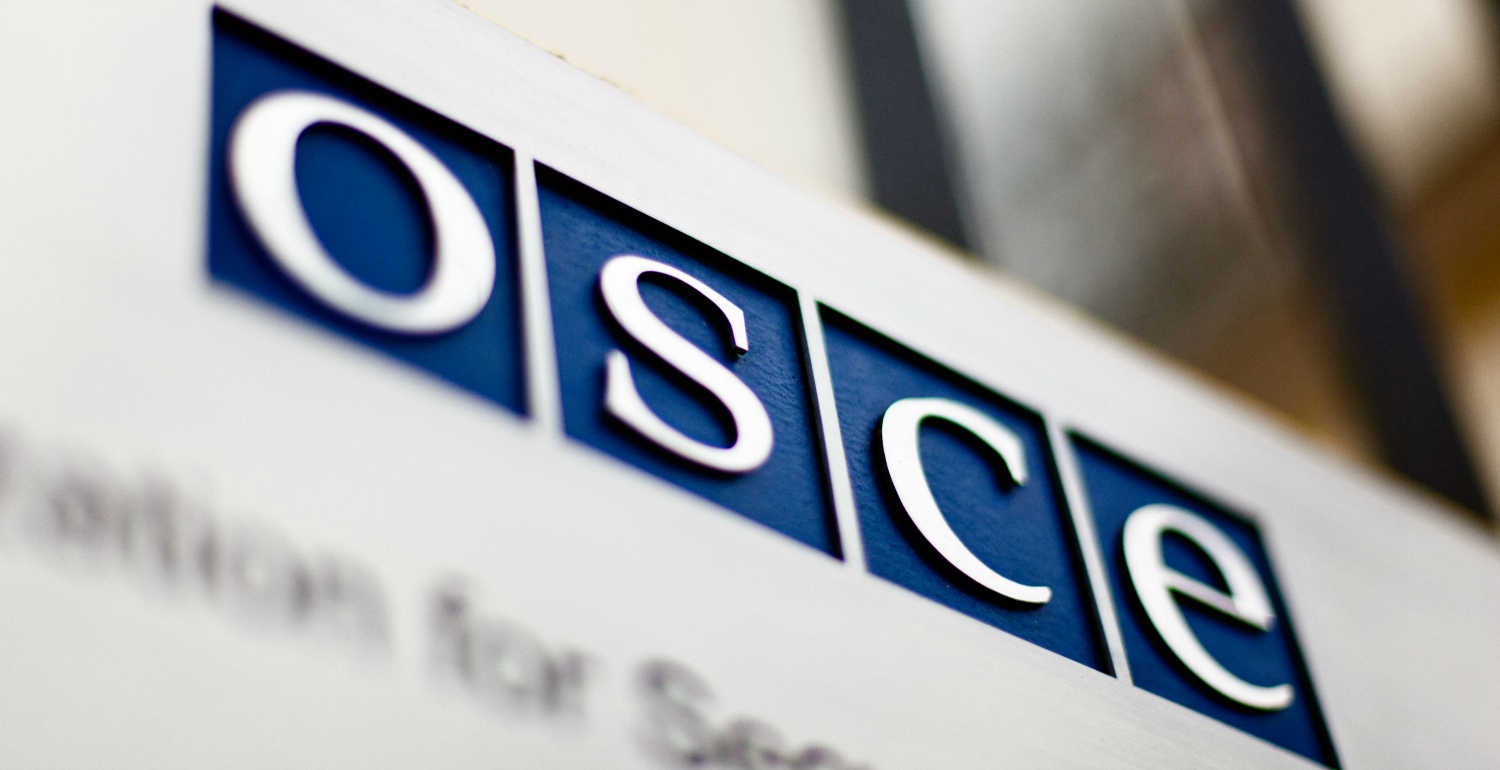By Erika Schlager, Counsel for International Law,
and Mischa Thompson, Senior Policy Advisor
In commemoration of International Holocaust Remembrance Day, the OSCE Italian Chairmanship hosted an “International Conference on the Responsibility of States, Institutions, and Individuals in the Fight against Anti-Semitism in the OSCE Area” on January 29, 2018. More than 300 government officials and civil society leaders participated in the event, including ten cabinet-level Ministers from OSCE participating States. Ambassador Michael Kozak of the Department of State Bureau of Democracy, Human Rights, and Labor, represented the United States.
Reflecting the Chairmanship’s strong commitment to addressing anti-Semitism, the conference was held during the 80th anniversary of Italy’s adoption of the Italian Racial Laws, which restricted the rights of Italian Jews and the native inhabitants of the colonies.
Conference participants raised concerns about the increasing power of anti-Semitic and xenophobic parties in France, Austria, Hungary, and Germany; anti-Semitic marches in Poland, Sweden, and the United States; and the safety and future of Jewish communities in Europe.
Several speakers voiced alarm regarding the a law passed in the Polish parliament on the eve of the conference, which is ostensibly intended to ensure accuracy when ascribing responsibility for the genocide perpetrated by Nazi Germany, particularly at death camps in German-occupied Poland. Critics argue that the bill will criminalize scholarship, journalism, and even first-hand observations regarding wartime crimes committed by Poles.
“Holocaust denial,” observed one participant, “should not be a state policy.”
Ministers from a number of countries cited the importance of speaking out against anti-Semitism. They also stressed the value of using the expertise of the OSCE Chair-in-Office Personal Representatives and OSCE Office for Democratic Institutions and Human Rights’ tools on hate crimes, Jewish community security, tolerance and Holocaust education, and civil society capacity and coalition building. Several government representatives commented on their respective countries’ use of the International Holocaust Remembrance Alliance’s working definition of anti-Semitism as a useful guide for participating States and civil society to expand efforts to address rising intolerance.
Non-governmental participants emphasized the important role of policymakers and government officials in speaking out against hate crimes and drafting and implementing laws to ensure that Jewish communities can live and worship in safety. Ensuring that individuals can practice the central tenets of their faith, from circumcision to kosher food preparation, without government impediments is central to freedom of worship.
Civil society groups, as well as representatives from Facebook and Google, discussed initiatives to address hate online, including the role of internet service providers in removing content that may violate terms of service or violate the law.
Of particular concern were disinformation campaigns on social media that promulgate negative stereotypes about Jews and may foster prejudice. One speaker described the “Protocols of the Elders of Zion” as an early exemplar of “fake news,” and others stressed the importance of counter-narratives to address particularly problematic stereotypes and falsehoods. While artificial intelligence may have a future role in addressing content that may be legal but is still harmful, current technology does not provide solutions.
A discussion of efforts targeting youth through education and sports featured Israeli Olympian Shaul Landansky and focused on the creation of environments in which anti-prejudice and anti-discrimination tools could be utilized, and at the same time bring diverse communities together. Such initiatives have the potential to broaden coalitions to address anti-Semitism and other forms of hatred.
OSCE Chair and Foreign Minister Angelino Alfano called for the OSCE to convene an annual anti-Semitism conference to commemorate International Holocaust Remembrance Day, and ensure a sustained focus on addressing anti-Semitism in the OSCE region. Slovakia, as the OSCE Chair-in-Office for 2019, has agreed to hold an anti-Semitism conference next January.
Prior to the opening of the Chairmanship conference, Pope Francis granted an audience to delegates and speakers, citing the importance of “educat[ing] young generations to become actively involved in the struggle against hatred and discrimination.”
His point was reiterated later in the day at the conference by young leader Alina Bricman of the European Union of Jewish students, who cited “treasuring inclusive societies” and “empowering youth to shape their communities” as key to a shared future.
Members of the Helsinki Commission have long advanced solutions to address anti-Semitism. Ranking Commissioner Senator Ben Cardin serves as the OSCE Parliamentary Assembly’s first Special Representative on Anti-Semitism, Racism, and Intolerance.
“The growth in anti-Semitic and xenophobic political parties across Europe and North America that foster an environment of hate increase the urgency of this conference,” said Senator Cardin. “Acknowledging our common history of the Holocaust is essential but more must be done. It’s incumbent upon all civilized people to ensure that tools are in place to counter a resurgence of the fear and hate mongering — whether directed at old targets or new—that led to those tragic events in the first place.”
“I am deeply disappointed that on the eve of this conference the Polish parliament passed a law that may impede research, scholarship, journalism—even personal reflections—on the Holocaust subject to criminal penalties. While the stated purpose of this law is to improve more accurate statements about the Holocaust, this is the wrong way to achieve that goal,” he said.






